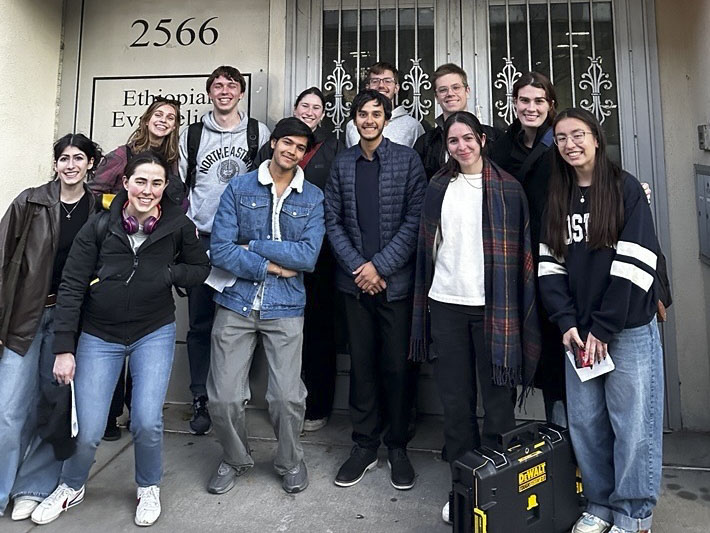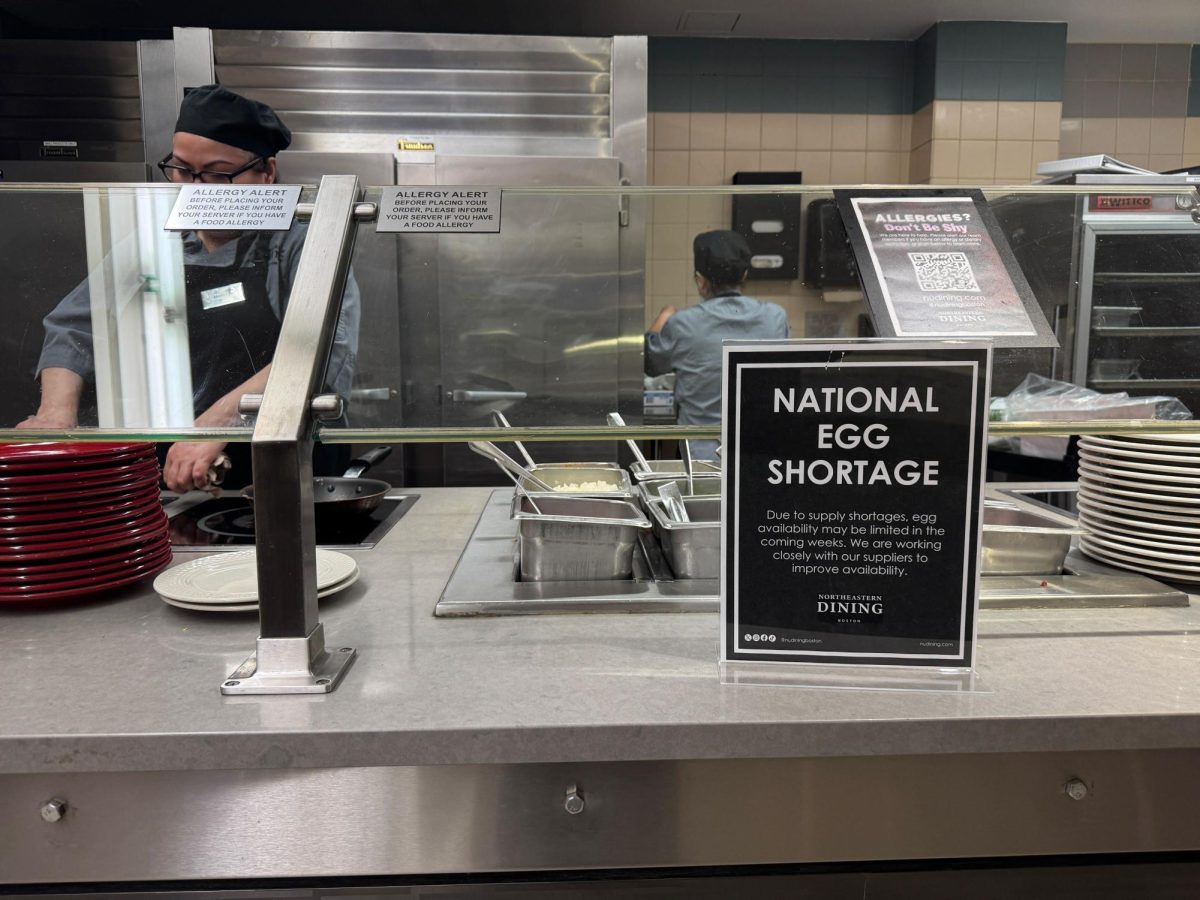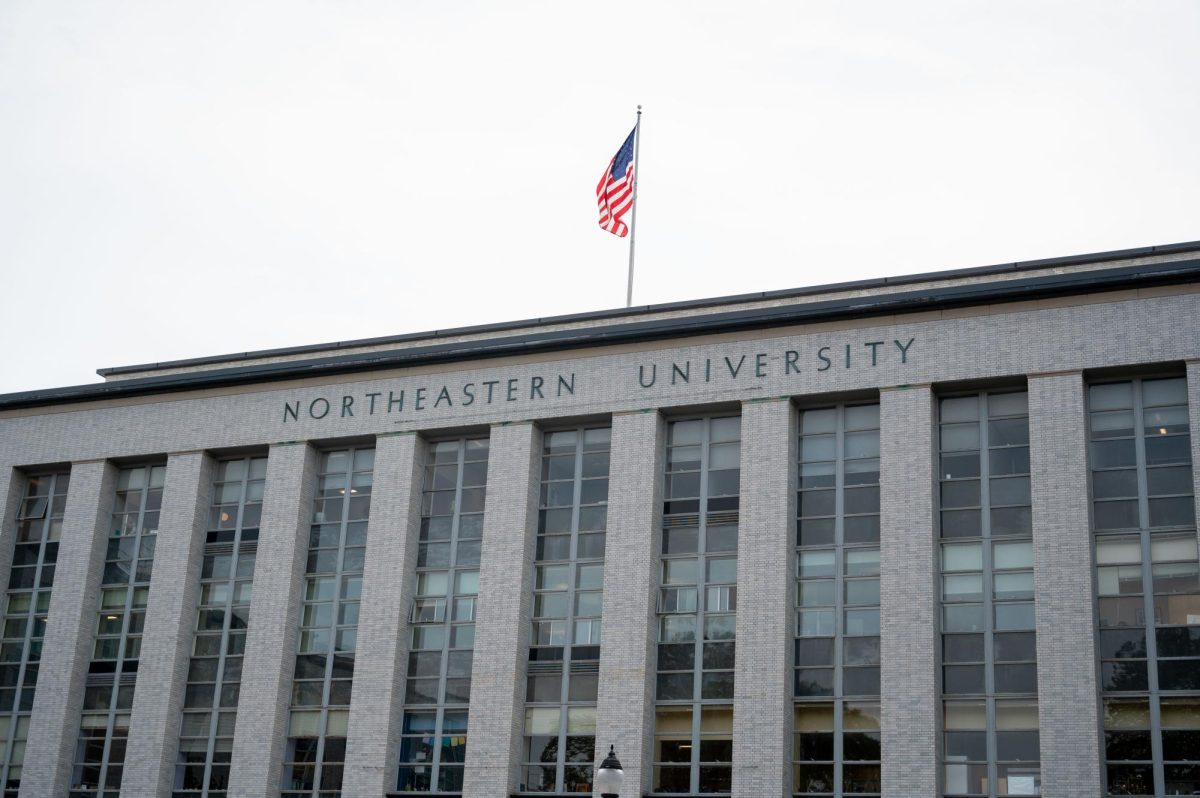By Hailey Heinz
This is the fourth in a five-part series examining students’ experiences with financial aid.
When Betty Ly decided to attend Northeastern, her parents sold their house in Newton and her mother took a second job. This was the only way Ly could afford to attend because she didn’t receive any financial aid from the school.
Ly, a junior electrical engineering major, is one of many students from middle-class families with just enough money that they don’t qualify for need-based aid, but not enough that their parents can actually afford to pay without making major sacrifices.
Although Ly’s choice of college put a strain on the family finances, she said her parents were happy to help her, even though she was offered scholarships from most of the other schools she applied to.
“If Northeastern was the best engineering school I was going to get into, why not?” Ly said. “This was what I wanted; there’s no price to an education.”
In addition to major sacrifices like selling a house and taking a second job, Ly said she and her family live simply and give up small things, especially now that her younger sister is attending the University of Rochester, putting extra strain on the family wallet.
“It’s just really budgeting. A lot of people don’t realize that can go a long way. We don’t drive fancy cars, we have a regular TV, we don’t have cable or anything,” Ly said. She also saves money by commuting to campus from her family home in Brookline. Although she has sacrificed the experience of an on-campus social life, Ly said she maintains connections with high school friends in Brookline, so she doesn’t really mind that she doesn’t have a Northeastern social network.
“You get some and you give some,” she said.
Although most parents don’t go to the extreme measure of selling a home for their child’s education, many families go to great lengths to pay for college, especially when traditional financial aid options fail them.
Lori Messina, a junior criminal justice major, said she didn’t get any aid or scholarships from Northeastern, leaving her searching for other ways to finance her education.
“I’ve applied for scholarships, applied for the FAFSA, done all the things Northeastern recommends,” Messina said. “I’m Italian, so I applied for Italian scholarships. I’m also Irish, so I applied for Irish scholarships. I applied for scholarships based on where I lived and where I went to high school.”
Even after trying all these options, Messina was left without any grants or scholarships to help her pay for school.
Seamus Harreys, dean of student financial services, said students who have trouble with financial aid have a variety of options, but should start by consulting their financial aid advisors.
“That’s the person who can give them all their options. Very rarely will there be an option that we don’t know about,” Harreys said.
He went on to say although Northeastern financial aid advisors are familiar with major loans and scholarships, there are a lot of smaller scholarships available for students who seek them out.
“Northeastern has a fairly generous policy with outside aid,” Harreys said, explaining that while some schools deduct outside scholarships from students’ financial aid packages, Northeastern allows students to replace work study funds instead, keeping their institutional aid. Harreys recommended students look at online scholarship databases such as www.collegeboard.com or resources at the Boston Public Library (BPL).
“If you spend two hours writing a two-page essay and get $500, that’s $250 an hour; that’s a worthwhile way of spending your time,” Harreys said. He said many of these scholarships have deadlines in March or April, so now is a good time to start looking.
Although winning $500 for writing an essay sounds like a good deal, Messina has tried it, and said it’s not that easy. Messina said she spent hours at the BPL, which has an extensive collection of scholarship materials and applications.
“I got nothing. I don’t know if I’m doing something wrong or if it’s impossible to get a scholarship or what,” she said. “I’m not even talking $42,000; just $1,000 or even $100 would be great.”
Without any aid or scholarships to cover college costs, Messina and her father are working together to get her through school, mostly by taking out loans. She said most of the loans are in her father’s name, but she is giving him money, and hopes to pay him back in full, although she knows she probably won’t be able to do so until years after she graduates. Despite the difficulties, she has stuck with Northeastern because she feels it is the best option in the long term.
“The only reason I’m still at Northeastern is that I think it’s going to give me a good career when I get out of here,” she said.
Like Messina, Ly is working with her parents to pay the bills. So far, she said the family has been able to pay as they go along, but she thinks she will have to rely on loans to finance her senior year. Although there have been a lot of sacrifices along the way, she said she has no regrets, and feels she is just doing what she has to do.
“If that’s what it takes to get a Northeastern diploma, that’s what I’m going to do,” she said.









